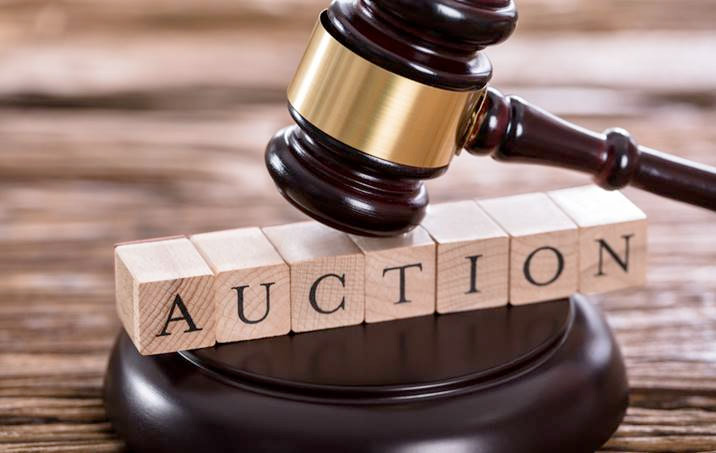How to Sell a House at Auction – A Useful Guide
Posted on: 30/06/2021The process of selling your house is certainly a tricky one, but quite possibly the most challenging problems you’ll face, is deciding how to sell it in the first place. One of the most commonplace methods of selling a property is through an auction.
But is it worth the risk? Is your property even desirable enough to others that they would be willing to outbid each other for it? And how do you even market a house for auction in the first place?
In this guide we’re going to go over everything you need to know about actioning your house, helping to clear any misconceptions you might have and help you to gain a better understanding of the process.
In this article we will look at:
- How do you sell a house at action?
- What’s the difference between a guide price and a reserve price?
- What are the advantages of selling at auction?
- What are the disadvantages of selling at auction?
- Things to Consider
1.How do you sell a house at Auction?
The process is a lot easier than you may think, and it works much in the same way as other means of selling, e.g., an estate agent. Similar to estate agents, auctioneers will take a percentage of the profit – often between 2-3%, as commission; therefore, it’s in their own self-interest to make sure the house sells well. The main difference is that the action house does not determine the final selling price, unlike an estate agent.
Getting your property up for auction is really simple and hassle free. The stressful part comes with actually selling the home. Due to the work necessary for an auctioneer to attempt to sell your house, even if your home does not sell, you will still have to pay the fees. This more often than not in the range of £1,200-£1,500 (+ VAT). To get the best out of your action sale, ensure you find a local business that knows your area well, and can adjust their strategies based on knowledge of what does and doesn’t sell in your area.
2.What's the difference between a guide price and a reserve price?
This is an element of auctioning that a lot of first timers seem to get a little confused by or taken-a-back by. To put it simply:
- A guide price is provided to buyers through the auction house themselves; it lets them know the price at which bidding for the property is most likely to start. The final purchasing price is expected to be higher, but this gives the buyer an idea of what they’re getting into.
- A reserve price is the minimum price that they would accept for a sale. As we’ve already mentioned, if the reserve price is not met, the seller is still liable for the auctioneer’s fees.
3.What are the advantages of selling at Auction?
One of the biggest advantages is how quick and efficient the process is. As soon as the buyer purchases the home, they will have to pay a 10% (minimum) deposit to secure the property. After this, the buyer must then present the full amount of funds within 28 days or the sale will fall through, and the deposit will not be refunded. This is perfect for a seller, as they get money in their pockets immediately, and the property will be taken off their hands as soon as humanly possible.
4.What are the disadvantages of selling a house at Auction?
It’s important to remember that there are two sides to every coin, so it’s only fair that we look at the possible downsides of selling at auction too. But also, how you can get around them.
4.1 Your house is difficult to value – In some cases a property may have a few unique attributes that make it hard to determine a value when compared to other properties in the neighborhood. For this reason, estate agents could undervalue the property in order to encourage a sale. This is good in a way, as buyers who frequent auctions are usually more likely to pay a higher price for distinctive, rare houses; but there’s always a chance that you could’ve received a better deal.
4.2 : Your house needs renovation – A majority of buyers at auctions also tend to be investors and will pay good money for a property that they can quickly renovate before making a swift sale and pocketing the difference. Make sure that your property is up to scratch and doesn’t require major repairs.
4.3 : Your house has sitting tenants – Houses with pre-existing tenants are perfect for those looking for a bargain that can immediately pay dividends in the form of rental payments. If you’re not already filling your property with tenants, get on this right away!
5.Things to Consider
But what about things that you just can’t help? Elements of auctioning that aren’t within your control are as follows:
- A house that’s “by-the-books” isn’t appealing to most buyers – as a result, “standard” homes often sell for as little as 40% of their market value.
- Auction houses are there for people with a lot of disposable cash, looking for a bargain, whose aim is to buy your house for as little as possible. They’re determined, and sometimes ruthless.
- While you may be able to transfer all associated auction fees to the buyer in the small-print, more experienced buyers could pick upon this, and ultimately drive down the price during bidding.
We hope you found this guide useful! Now it’s up to you to determine whether or not to auction your house off to the highest bidder or go a quick property buying company. It’s your choice...
UK property buyers for cash. Company Number: 12669628




